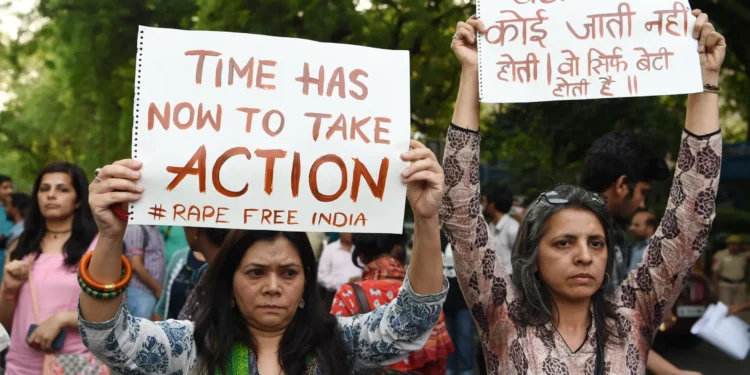Brussels (Brussels Morning) – The Public Prosecutor’s Office is conducting an inquiry into a gang rape of a 14-year-old girl in a bush in Kortrijk. A dozen young suspects – between 12 and 16 years old – have been apprehended and placed under the supervision of a juvenile judge.
A 14-year-old girl was the victim of a gang rape during the Easter holidays. This is ratified by the West Flanders public prosecutor’s office, which has been examining the case in recent weeks. The girl was said to have been taken by her boyfriend to the ‘Kabouterbos’ on Scheutistenlaan in Kortrijk for at least two days. That boyfriend is declared to be a ‘lover boy’, who allowed the girl to be abused by his friends.
How Did Authorities Discover the Gang Rape Incident?
It is not yet clear how the facts came to light. All those involved have been identified. “The suspects have been arrested and are under the supervision of the juvenile judge,” states the West Flemish public prosecutor’s office. “The juvenile judge has taken the necessary measures, including placement in community institutions. The investigation is still ongoing.”
It concerns about ten very young suspects, all teenagers from barely twelve to sixteen years old. Each of the minor suspects is given a personal program by the juvenile judge. Further police investigations must determine whether they all participated in the rape.
How Does Psychiatry Address Teenage Criminal Behavior?
Psychiatrist Nils Verbeeck, affiliated with the Forensic Institute for Deviant Sexuality, states that it is important to determine how teenagers could commit crimes. After all, it is a crucial question for the juvenile judge whether their behaviour can be corrected.
According to psychiatrist Verbeeck, the reasons why young people engage in crimes are “completely different” than for adult perpetrators. “They usually don’t exhibit completely abnormal sexual behaviour,” he states. “Young people who commit such crimes when they are minors usually do not have such a negative prognosis for their future. There are very few known cases of recidivism among perpetrators who committed sexual offences at a young age.”
How Does Social Media Impact Teenagers’ Behavior?
Peer pressure may have recreated a major role. Social media can also have a negative influence, says Verbeeck. “Due to a lack of direct contact, our ability to empathize is weakened. We – and this applies especially to young people – can no longer estimate the consequences of what we say and do. We know less and less where the limit of what is permissible lies.”
Moreover, the Internet means that children are coming into contact with porn at an increasingly early age. “They often also watch porn that focuses on extremes, such as anal sex or group sex. As a result, teenagers’ approach to sexuality has completely changed.”
The victim would be taken care of. “She needs to be well kept so that she finds sufficient mental capacity to give this a place in her life,” says Line De Vlamynck, a psychologist and sexologist specialising in trauma in victims of sexual offences. She makes the comparison with people who had a heart attack. “They can recover from that infarction, but the damage to their heart never completely disappears.”
“Fears of death such as those you experience as a victim of sexual offences leave you with lifelong trauma. In the case of gang rape, this trauma may be even greater, because such a group is very intimidating. The perpetrators are shouting, they comment while you are being raped, they laugh …”
Various therapies can assist in processing the trauma, says De Vlamynck. It is important that the victim does not feel guilty about the facts, even if she made an appointment with the perpetrator(s), states De Vlamynck. “You don’t agree to be raped by someone. Victims should also have no shame because they offered little resistance. You cannot consciously choose how you respond in a crisis.”




